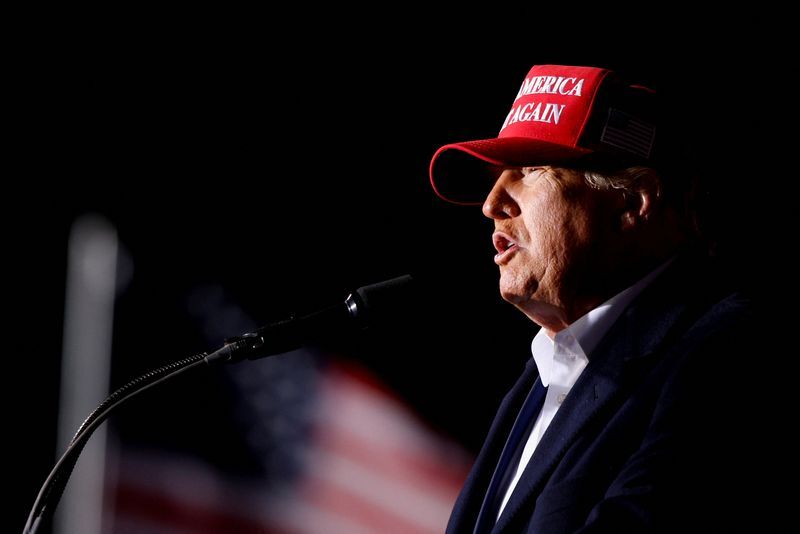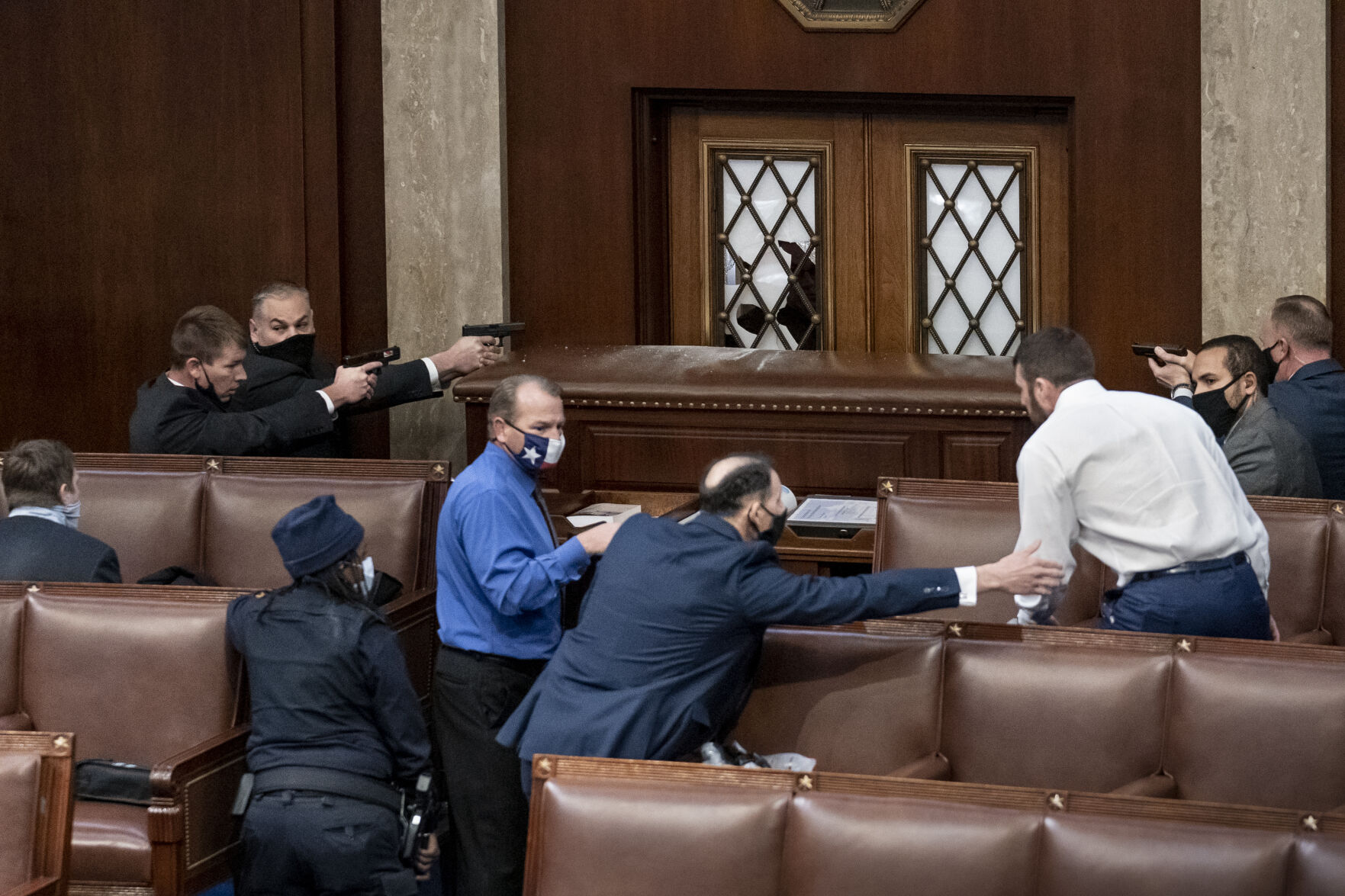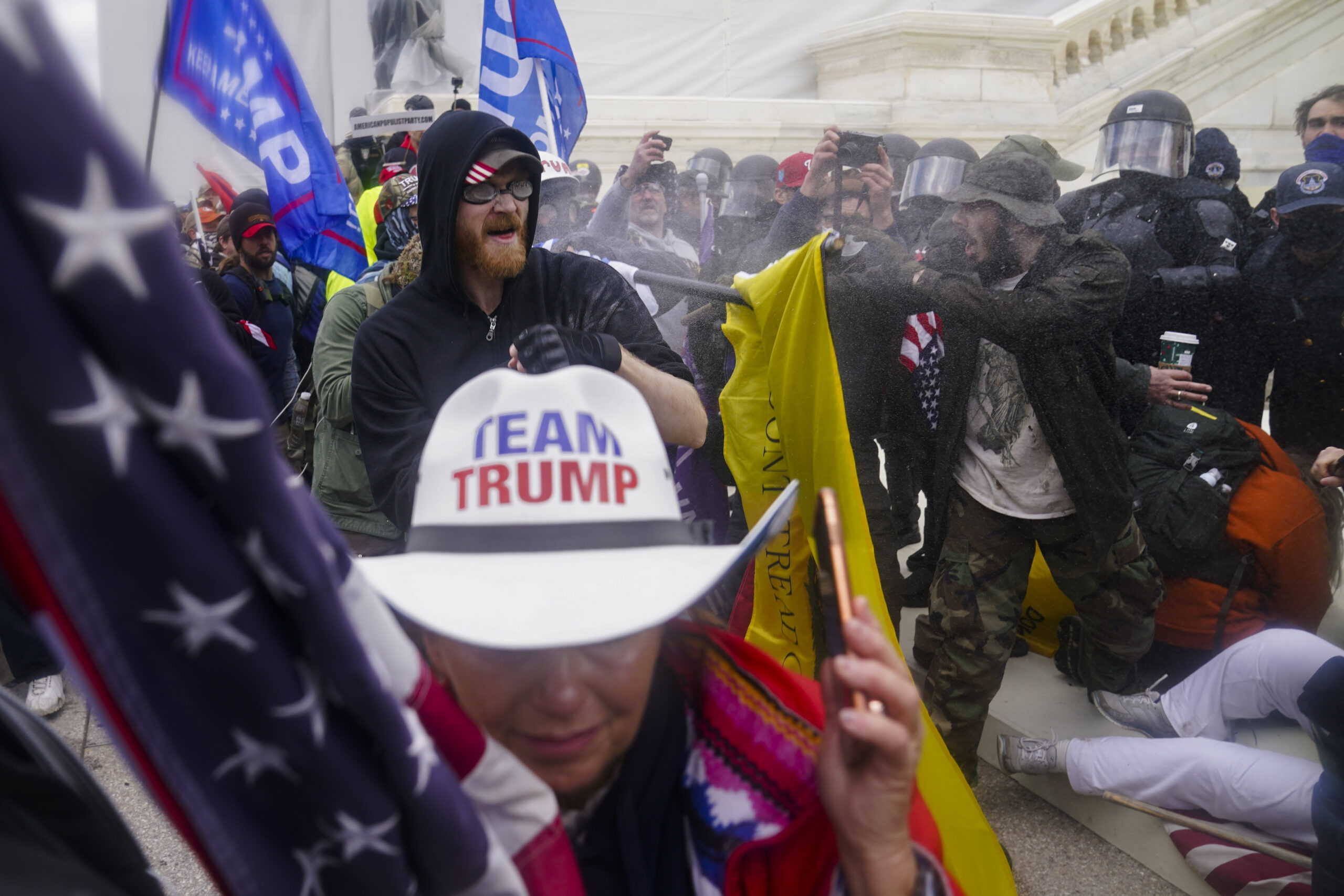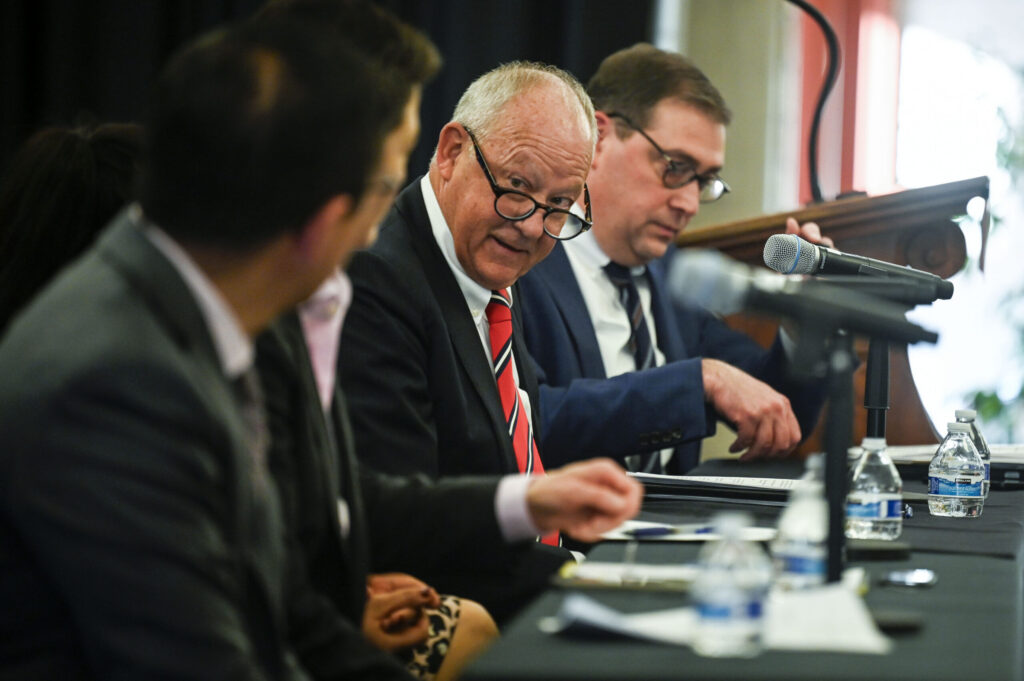The Trump ballot disqualification trial begins in Colorado this week. Here are 7 things to know

A weeklong hearing in Denver District Court this month will answer an extraordinary legal question with potential ramifications nationwide: Did Donald Trump engage in an insurrection as president, rendering him constitutionally ineligible to seek the office again in 2024?
Here is an overview of the case to date and the disputed issues heading into the courtroom:
What is this legal proceeding about?
On Sept. 6, four Republican and two unaffiliated voters in Colorado filed a petition against Trump and Democratic Secretary of State Jena Griswold. They seek to bar Griswold from placing Trump’s name on the 2024 Republican presidential primary ballot or any future ballot. They argue Trump stoked an insurrection against the United States, in the form of an attempted overturn of the 2020 election results and the Jan. 6, 2021 attack on the U.S. Capitol.
Under the 14th Amendment, Trump is disqualified from holding future federal or state office, their petition contends.
The petitioners include Republican former state representative and senator Norma Anderson and former U.S. Rep. Claudine (Cmarada) Schneider, R-R.I. They have asserted an interest in voting in the Republican presidential primary for only constitutionally eligible candidates, of which Trump may not be one.
The watchdog group Citizens for Responsibility and Ethics in Washington is also involved in the litigation.
What laws are implicated?
The petitioners brought their case under two Colorado laws. The first requires the secretary of state to certify names for the presidential primary ballot and provides for an expedited court challenge to the listing of candidates. The second, related, law permits voters to file a petition when election officials are “about to” commit a wrongful act.
Allegedly, Griswold may be about to commit a wrongful act: placing Trump on the ballot despite his constitutional inability to hold office.
The petitioners base that allegation on Section 3 of the 14th Amendment, a post-Civil War provision aimed at barring supporters of the Confederacy from government office. Section 3 prohibits members of Congress, state officials and any “officer of the United States” who took an oath to support the Constitution from holding state or federal office if they have “engaged in insurrection or rebellion.” Two-thirds of Congress may vote to lift that prohibition, however.

Who is going to decide these issues?
Judge Sarah B. Wallace is presiding over the case. She joined the Denver District Court in January, following a career in private practice handling complex litigation, breach-of-contract disputes and employment claims. As a lawyer, Wallace was also involved in a decades-long legal action in the San Luis Valley involving residents’ pre-statehood rights to access grazing and timber land.
Is Trump himself part of the case?
Originally, the petitioners brought claims against both Trump and Griswold. They have since dismissed their claim against Trump, but Trump requested permission to intervene in the case against Griswold. His attorneys argued he had a clear interest in the outcome of the disqualification question – whether he retains the right to run for office – and Griswold would not adequately defend that interest.
“In her well-publicized commentary to national media, the Secretary has not hidden her contempt for President Trump, her belief that he both instigated and engaged in an insurrection on January 6, 2023 (sic), and he should be barred from running for re-election,” wrote Trump’s lawyers, who include Republican former Secretary of State Scott Gessler.
Wallace granted Trump’s request to intervene earlier this month. For the logistics of the hearing, Wallace considers the petitioners and Griswold to be on one side and Trump to be on the other.

What has the judge said to date?
There have been several orders addressing some or all aspects of the case. First, Wallace rejected Trump’s attempt to dismiss the petition using a state law that protects against lawsuits rooted in a person’s free speech rights. Wallace found the law to be incompatible with the expedited review of ballot access and, furthermore, the petition fell into a public interest exception to the law.
She subsequently rejected Trump’s argument that the ballot access laws are not a proper vehicle to litigate constitutional questions, noting the secretary of state is obligated to exclude constitutionally ineligible candidates.
As for the Colorado Republican State Central Committee, which also intervened in the case, Wallace rebuffed the notion that the party, not the secretary of state, has the prerogative to decide which candidates are put forward. Under that logic, Wallace observed, political parties could list non-citizens on the ballot and the secretary of state could do nothing to prevent it.
“It is the United States Constitution which is the supreme law of the land, not internal political party rules,” she wrote.
Finally, Wallace reviewed past cases challenging the presidential candidacies of Barack Obama, John McCain and Ted Cruz, each of which addressed whether courts could answer questions of candidate eligibility. Ultimately, she decided she needed to hear evidence, as Section 3 of the 14th Amendment and a related provision in the 20th Amendment are not clear about who is supposed to decide whether a candidate is qualified for the ballot or not.
“The text is simply silent,” she noted.
What will the hearing focus on?
Wallace provided the parties with a list of topics she would like them to address. Although she labeled the list as “guidance,” the questions encompass the major legal and factual questions in the dispute. They include:
? How often does the secretary of state exclude candidates from the ballot for constitutional reasons?
? How has Section 3 of the 14th Amendment been applied throughout history?
? Is Section 3 “self-executing” or does there need to be separate legislation giving it teeth?
? What does it mean to have “engaged in insurrection?”
? Does Section 3 even apply to former presidents?
Wallace has given each side 18 hours to present its case.
Will the Colorado Supreme Court get involved?
It already has. Days before the hearing, Trump petitioned the court to halt the proceedings or else dismiss the case outright, raising a variety of grievances. Trump’s lawyers alleged he has “no foreknowledge of the legal standards” governing the case, that the court must prevent a “sensationalized” hearing, and that Griswold should certify Trump for the ballot first and then not count any votes he receives if he is, in fact, disqualified.
Trump also claimed the “extent and purpose of the violence on January 6th are disputed.”
On Oct. 27, the state Supreme Court denied Trump’s request, explaining in a brief order that it would “maximize efficiency” for the justices to consider his arguments on appeal. Under Colorado law, the parties will have three days to appeal Wallace’s ruling to directly to the court, which has the ability to decline the case and let her order stand.














